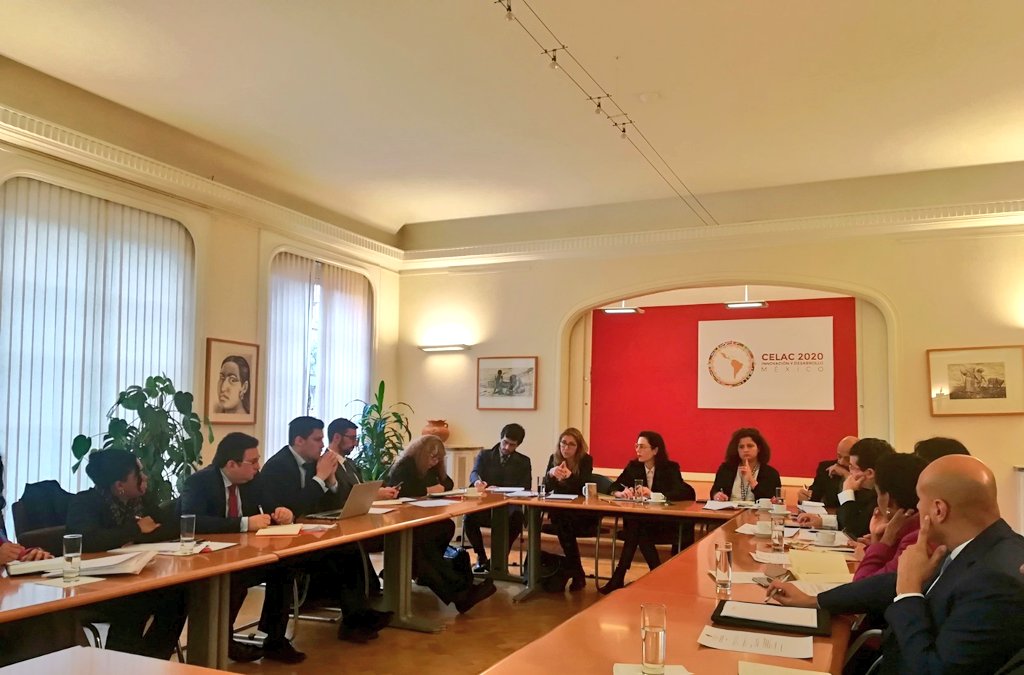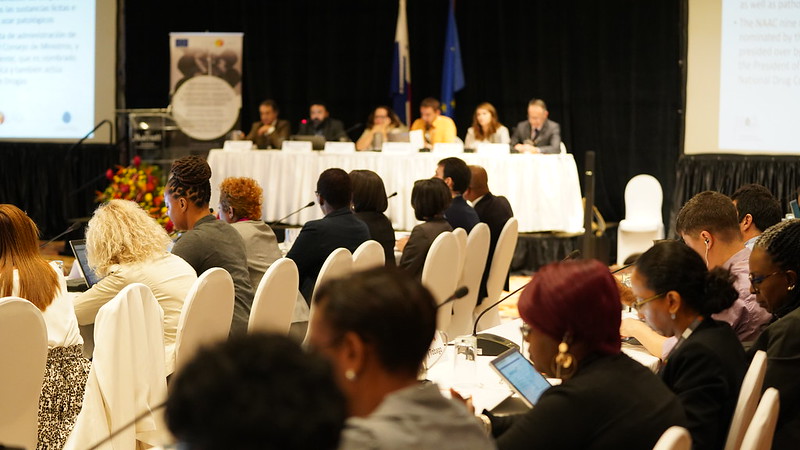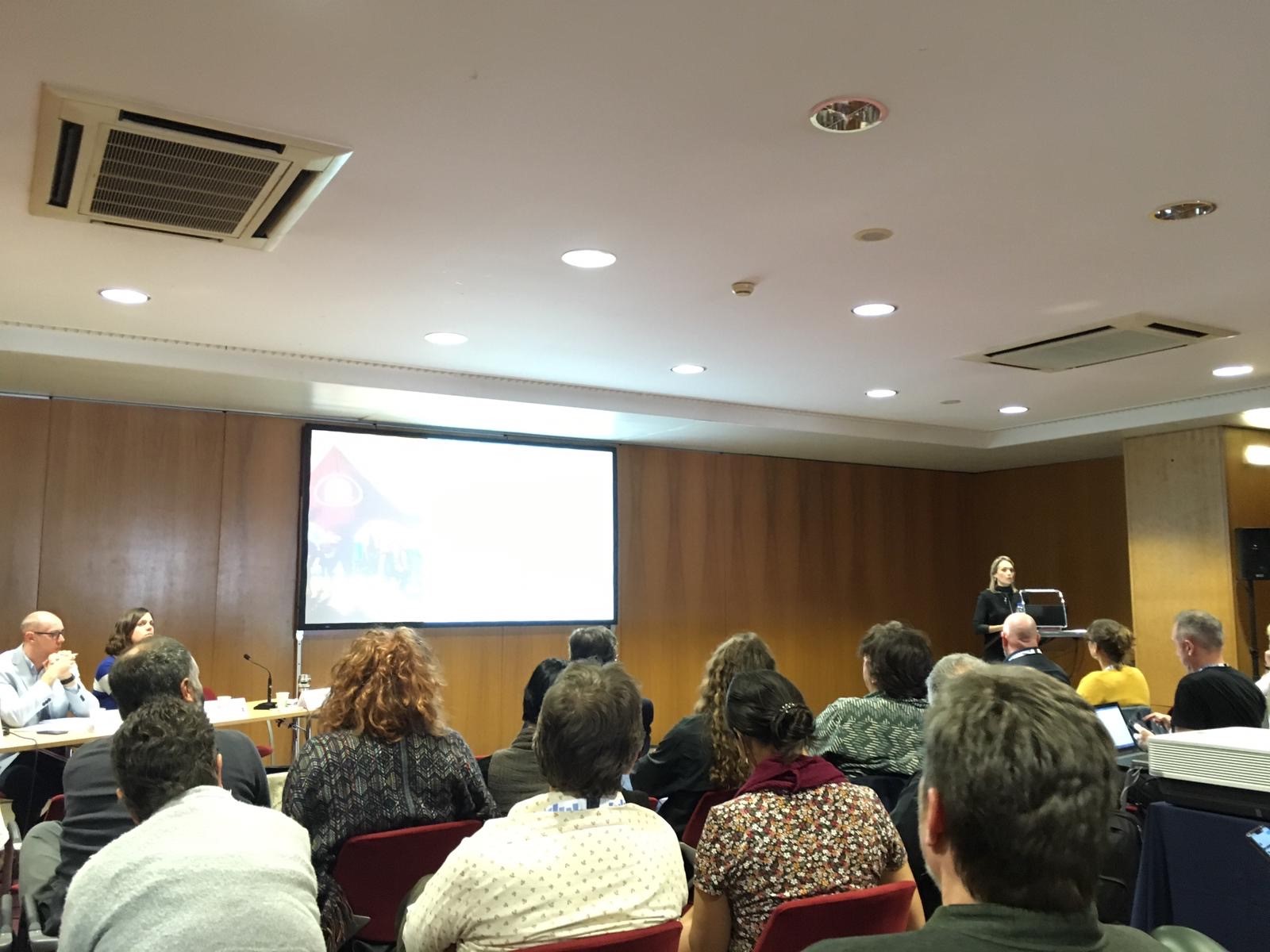COPOLAD support to the works of the EU-CELAC Mechanism
Among the objectives of COPOLAD is to provide technical support to the work developed by the EU-CELAC Coordination and Cooperation Mechanism on Drugs. Within this framework, the programme has continued to work in a very active and coordinated manner with both the EU and CELAC Co-Presidencies of the Mechanism and with the countries of both regions.

During these months, COPOLAD II has continued to participate in the meetings of the Mechanism's Technical Committee in Brussels, where it has reported on COPOLAD's activities, and where work has been carried out with a view to the next High-Level Meeting (HLM) of the Mechanism in Croatia, scheduled for April 2020.

As part of COPOLAD's efforts to improve coordination actions with representatives in Brussels on key issues for drug policy in CELAC countries, at the end of 2019 representatives to the Technical Committee of the Mechanism from Latin American and Caribbean countries and the European Union were invited to participate in the 3rd Bi-regional Meeting for the Exchange of best Practices between Latin American and Caribbean Countries and the European Union: Accreditation and Quality Assurance in Drug Demand Reduction (27 and 28 November, Panama City, Panama). Their participation was considered appropriate in order to support the resolutions adopted in the Paramaribo Outcome Document, approved by both regions at the last HLM of the Mechanism in June 2019, held in Suriname, which defined that the thematic debate for the next meeting, in the area of drug demand reduction (DDR), will be the Legal Framework and Strategies in Response to the Demand for Illegal Drugs. As already indicated in the section of this newsletter dedicated to COPOLAD's Component 2, the meeting provided a space to present the progress made so far in the area of Quality Assurance by the countries of Latin America and the Caribbean and facilitated the possibility for all stakeholders to promote it in each country, could jointly explore the main challenges faced by the different institutions responsible for planning and implementing quality policy in DDR, in order to optimize their efforts in a coordinated manner, with the aim of moving towards legal frameworks for quality assurance of prevention programmes and care services.

Finally, by the end of 2019, the final draft report: “Women and Drug Policy: Report on the situation in Latin America and the Caribbean, progress and future priorities”, produced on-demand from the UE-CELAC Mechanism, was distributed to interested countries in Latin America and to the bi-regional networks of NGOs participating in COPOLAD II as collaborating entities. We have invited all these institutions to review this last version, before its translation into English. After that, the report will be sent to interested Caribbean countries, and after their revision, the final version of it will be edited.
Coordination and synergies: participation of COPOLAD in other forums
COPOLAD has maintained its presence in key international forums as the Lisbon Addictions 2019 celebrated in Lisbon (Portugal) from 23 to 25 October 2019. COPOLAD has participated in the framework of this Conference at The international symposium on drug checking, which took place on 22 October. This symposium was organised by the EMCDDA in collaboration with the General-Directorate for Intervention on Addictive Behaviours and Dependencies of Portugal (Serviço de Intervenção nos Comportamentos Aditivos e nas Dependências, SICAD), COPOLAD and the Trans European Drug Information (TEDI) network. Recent changes in Europe’s cocaine and synthetic drugs markets pose a challenge for traditional drug monitoring, hence address this issue is most pertinent. Data from drug checking services can provide valuable information on drug market dynamics at user level, therefore at this Conference was necessary to explore drug markets dynamics with an international comparison of cocaine and MDMA trends, purity and adulteration in producing and consuming countries through European, Colombian and Australian drug checking test results; and to discuss the challenges and opportunities of drug checking within national drug policies.

COPOLAD was also invited to participate at the Crime Week in Brussels (Belgium), from 25 to 29 November 2019, organised by the Nuclear Safety Unit of EuropeAid/European Commission, in view of the new EU budgetary period (2021 - 2027) and the launch of a new umbrella programme for its organised crime portfolio, named Global Illicit Flows Programme (GIFP). This programme will include the existing components of the CRP (AIRCOP, SEACOP, CRIMJUST, COLIBRI and CORMS), as well as projects EU-ACT and ENACT. Crime Week held a series of four back-to-back events, acting as a launchpad for the new programme, but also as a platform where a broad range of individuals, organisations and institutions dealing with the fight against organized crime can discuss, coordinate, and learn, so COPOLAD was among them. All with a goal a more coherent and meaningful EU external engagement in the domain of fighting organized crime.

